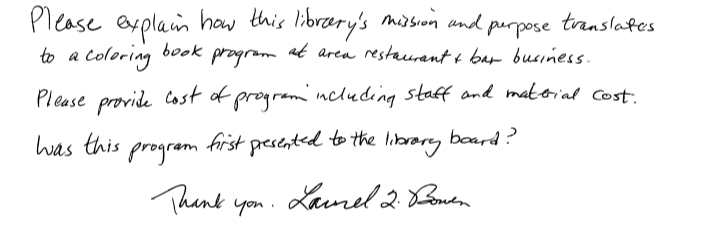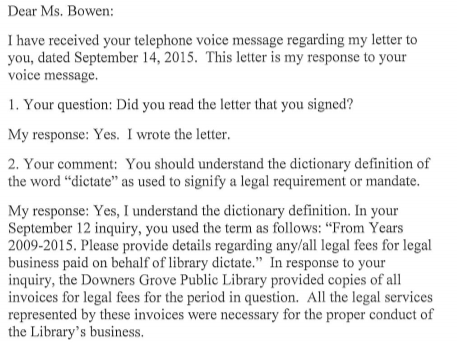Since late last year I’ve become very interested in the Freedom of Information Act (FOIA). If I had to point fingers, I’d have to say that Jason Leopold’s reporting has really made me aware of not only what I can get from FOIA, but also his reporting illustrates the frustrations of a reporter as government agencies try to obfuscate, redact, and be obstinate.
I took the dip this year and started writing some FOIA requests of my own. This new series will document my experiences with FOIA.
There’s a slew of FOIA guides out there and most advice recommends that you start local. So I requested the FOIA logs from my local library.

The logs are impressive for a couple of reasons. First, I requested the logs but I was able to obtain all the FOIA requests in their entirety including the documents requested by those requestors. This is because the library does not maintain a log or list of all the FOIA requests; instead the have a file of the requests and responses.This means with one single FOIA request I received 254 pages of documents.
The thing that struck me first about the documents is that almost of the FOIA requests are hand written – often on library stationery. The more interesting component to these requests is that they don’t necessarily strike me as asking for records like a traditional FOIA request does. Instead they ask for clarification or seek additional information.

I was surprised that the director of the library is the responder to all of these requests. Perhaps this is a perk of living in a small village: there’s no communications department so you can get an answer from the person in charge.
Of the 14 requests in a two year time frame, all but two are from one individual: Laurel Bowen. A quick internet search revealed that she is a member of a local government watch group – Downers Grove Watch.
FOIA was created to provide sunlight on elements of the government that would otherwise be in the dark. Bowen’s requests show that no matter what a government body is doing, someone is questioning it. I admire her moxie.
She is persistent too. Page 218 is a letter to Ms. Bowen in regards to a voicemail pertaining to another request. The then director of the library, Rick Ashton, replies succinctly but you can almost hear the frustration in his voice.

All though there is a lot of churn online about redactions, I can see how persistent requestors could be wear a FOIA officer down. In this example, the requestor thought she was clear but the FOIA responder thought he was correct with his initial response.
One of the other requests in this bundle sought records pertaining to masturbation and indecent exposure. For this serious matter, the correspondence on p. 132 shows how staff are stuck walking a fine line. Staff saw “some skin, but not the most relevant skin.” In this case, a police report was filed in the matter and the patron was permanently banned. Interestingly, it appears that only two police reports have been filed on this subject (the records from this request end at the year 2015). While some may think that the police should be involved every time, based on the records provided it appears that staff approaching the patron is enough to usually deter them and the patron usually leaves the premises.
With this being one of my first FOIA requests, I was delighted by the volume of records provided. From my experience working at my college library, I knew that libraries can be controversial, but they are controversial because they are bastions of free speech that are supported by taxpayers. I wasn’t sure what my request would turn up.
As this series continues, I’ll document my lessons learned from the request process and share the files procured too.
Until I figure out a good way to embed the files I received, you can access them here.
Post-script: In FOIA related news, I just learned an acquaintance from high school is currently suing the FCC over his FOIA request. Good luck Jason!
